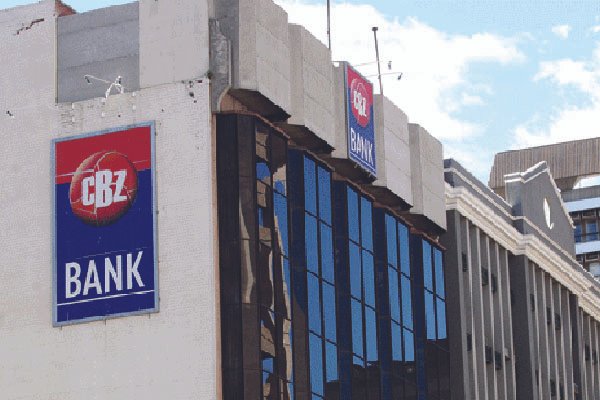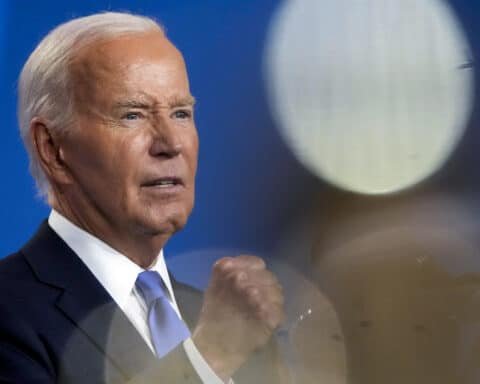ZIMBABWE’s biggest bank by asset base, CBZ Bank, has been slapped with a staggering US$3,8 billion fine by the United States Treasury’s Office of Foreign Assets Control (Ofac) for thousands of financial transactions done on behalf of ZB Bank then under economic sanctions imposed by the world’s largest economy, the Zimbabwe Independent can exclusively reveal.
By Bernard Mpofu
However, after mitigation and negotiations in recent months, the penalty has been reduced to US$385 million. The amount could still be further reduced as difficult negotiations are still ongoing.
In a pre-penalty notice to CBZ through its American lawyers Ferrari Law Partners, Ofac said CBZ — which has been issuing cautionary statements of late over this issue — had perpetrated 15 127 violations of US sanctions on Zimbabwe.
“Accordingly, the base penalty for the apparent violations equals the applicable schedule amount for each apparent violation, capped at US$250 000 per apparent violation, which in this case totals US$3 856 505 460,” Ofac deputy director Andrea Gacki wrote in March. The case has been ongoing since then.
Ofac said it had arrived at the figure after CBZ failed to make voluntary self-disclosure of the violations.
After some CBZ mitigation, Ofac reduced the amount to US$385 million.
“Ofac has determined that these factors taken together support a reduction of 90% (US$385 650 546) from the base penalty amount,” the Ofac letter says.
The case is likely to send shockwaves across the financial services sector amid fears of a massive negative impact on the bank which could trigger a run on deposits and systemic risk.
Already, the sensational case has claimed the scalp of CBZ group chief executive Never Nyemudzo who was forced out this week. Although he has said he voluntarily decided to take a rest, the Ofac case was the root cause of the problem, not insider loans, shareholder displeasure or alleged fraudulent activities.
While there were many attendant opportunistic issues, the Ofac issue, which on some transactions preceded his tenure, was the main cause of his departure this week. Nyemudzo accepted a huge exit package last week before an announcement of his departure this week.
Nyemudzo’s case is different from that of former CBZ chairman Elliot Mugamu who was forced out following pressure from National Social Security Authority (Nssa) over corporate governance, dividend and remuneration packages issues for executives, as first reported by the Independent in March.
CBZ is the largest bank in the country by deposits and assets. According to an internal presentation made during the release of the group’s half-year results in August, CBZ, which processed US$14 billion in transactions in the first six months of the year, accounted for 35% of the value of national transactions. The bank, which boasts of 408 000 active accounts, has assets worth US$2,2 billion, representing 14% of gross domestic product.
Outside the central bank, CBZ is government’s main banker with most state-owned enterprises and the bulk of civil servants transacting through the institution.
CBZ offers a wide range of financial services solutions to personal and corporate customers, including current accounts, term deposits, corporate banking, investment banking, treasury services and trade finance.
CBZ majority shareholders as at March 2017 included CBZ Holdings Limited 24,59%, Government of Zimbabwe 16,01%, Libyan Foreign Bank 14,06% and Nssa 11,71%.
The US Treasury said pursuant to guidelines, the fine could either be increased or reduced. Efforts to get a comment from Ferrari were unsuccessful as he was said to be out of office.
CBZ, according to the Ofac letter, took remedial action by closing the internal account used to conduct transactions on behalf of ZB customers. Ofac also considered other mitigating factors as the bank has no prior sanctions history, including receipt of penalty notice or finding of violation in the five years preceding the date of the earliest transaction giving rise to the apparent violations.
It is also understood the bank’s lawyers will further explain that most of the transactions in question between ZB and CBZ were “in-country”, arguing these may not be subjected to Ofac compliance requirements. The lawyers will also argue the transactions were not carried out by persons or entities facing sanctions.
Zimbabwe has lost more than 60 correspondent banking relationships, making movement of funds and financial intermediation offshore even more difficult.
Contacted for comment yesterday, Reserve Bank of Zimbabwe (RBZ) governor John Mangudya said the matter is still under negotiations.
“The matter has not been concluded,” he said. “We sincerely believe that in-country transactions are not subject to Ofac rules and regulations, and that it is cross-border transactions that need to pass Ofac compliance requirements.” Mangudya added: “Zimbabwe continues to re-engage with the international community to ensure that sanctions are removed. It is against this background that we call upon all Zimbabweans to rally behind the need to improve the operating business environment to minimise country risk that is an inhibiting factor to access foreign finance.”
Contacted for comment, CBZ board chairman Noah Matimba said the Ofac issue had “national interest” and “national security” dimensions. He said Nyemudzo had voluntarily resigned.
“On the issue of Ofac, may I advise this is a matter of national interest and even (national) security and therefore as CBZ we are unable to comment or say more. We advise that you get in touch with the governor of the Reserve Bank or the Minister of Finance for more information. Because of this response and position, we strongly advise that you do not attach any figures to your story,” Matimba said in a written response to questions.
ZB group chief executive Ronald Mutandagayi declined to comment. Finance minister Ignatius Chombo did not respond to queries
Ofac said between December 2009 to November 2014, CBZ facilitated 15 127 US-dollar-denominated transactions of about US$180 300 152 to or through the US that involved property or interests in property of ZB in violation of financial sanctions of Zimbabwe.
Last year in October, Ofac removed ZB Financial Holdings, its subsidiaries, the Industrial Development Corporation, along with other individuals and entities, from the list of Specially Designated Nationals and Blocked Persons that were designated under the Zimbabwe-related sanctions programme.
After all mitigating circumstances had been considered, CBZ’s hefty penalty was reduced to US$385 million.
CBZ was initially asked to provide a response within 30 days, which it did. The bank also engaged a team of negotiators to deal with the issue which was paid US$2,9 million, although the fee charged was said to be about US$6 million. It is understood the hefty amount paid to negotiators did not go down well with the board and the RBZ, resulting in Nyemudzo’s exit.
Nyemudzo this week insisted he had left because he wanted “to rest”.
Nssa chairman Robin Vela told the Independent Nyemudzo’s resignation had nothing to do with corporate governance, executive packages and dividend issues raised by the social security agency at the beginning of the year.
“Never’s departure has zero to do with Nssa,” he said. “We had issues with the board previously, but the chairman left and we have been working together with the board and management.”
CBZ Holdings in August reported a net profit of US$12 million in the six months to June which was largely flat when compared to US$11,9 million achieved in the same period last year.
The Ofac issue last night sent CBZ, RBZ and government officials scrambling for an explanation to contain the potentially explosive banking issue.








